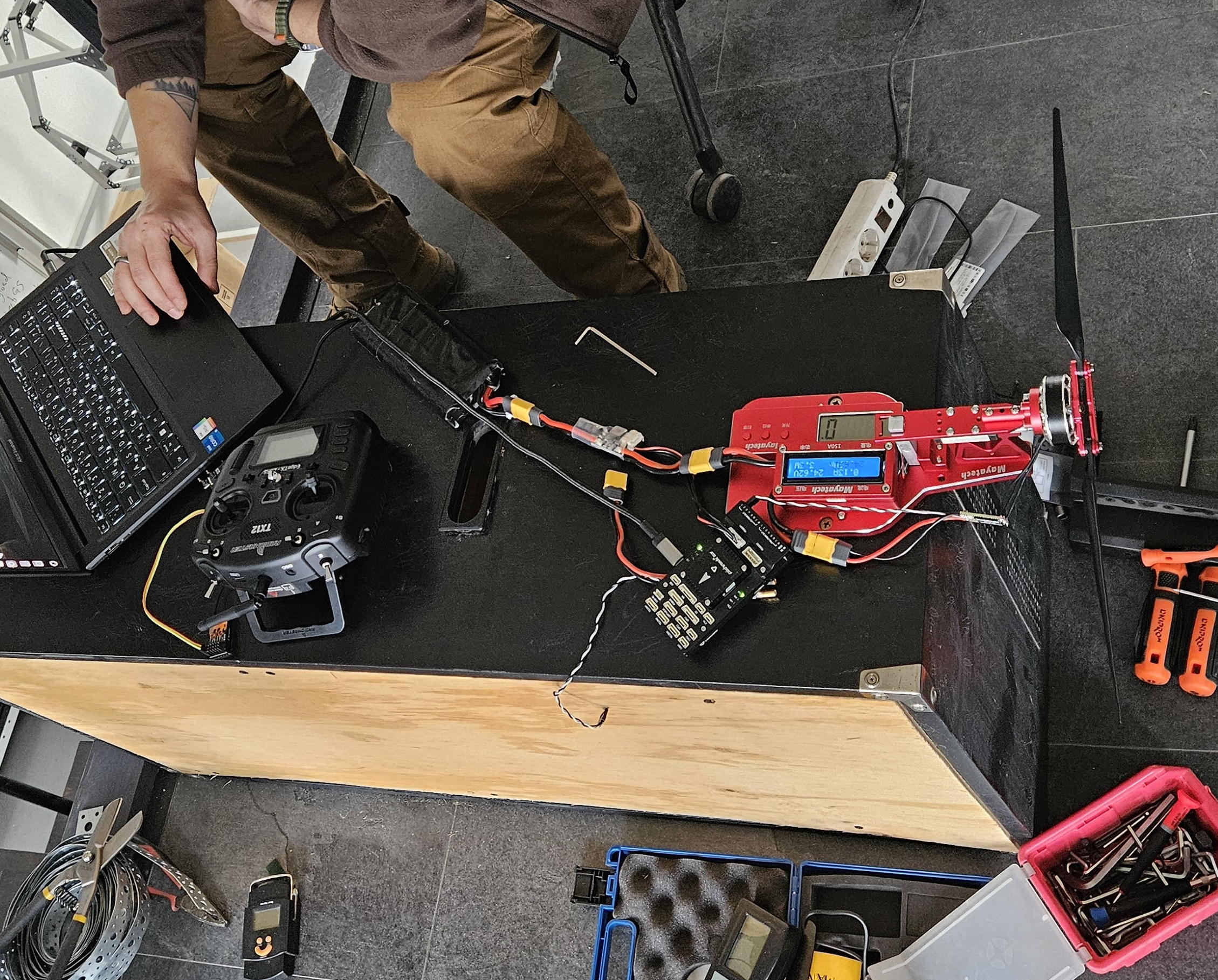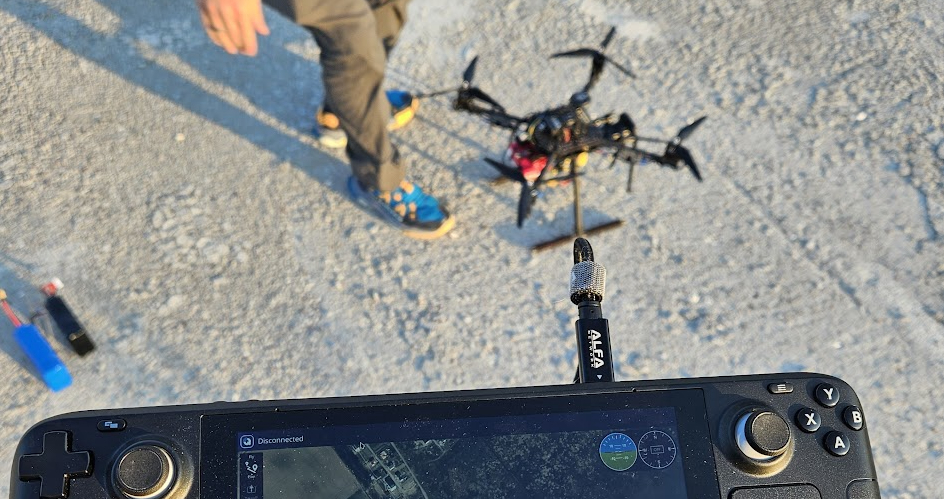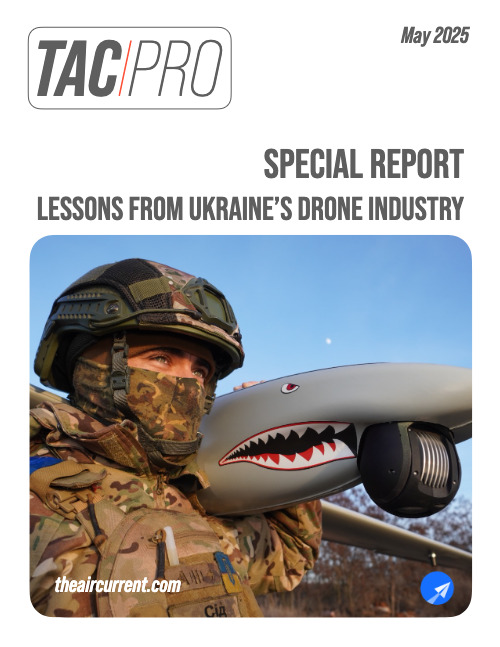This company profile is a part of The Air Current’s Special Report on the Ukrainian drone industry, which is available here.
As the hardware acceleration program lead for Ukraine’s Brave1 initiative from May 2023 to April 2024, Oleksandr Davydenko spoke with many members of the Ukrainian Armed Forces about what they wanted from an unmanned aerial system. Those insights provided the foundation for Black Forest Systems, which he founded along with chief technology officer Alex Winter in July 2024.
An early-stage startup still seeking additional investors, the company ultimately aims to provide the much-sought-after capability to control multiple drones simultaneously. However, with their first product, an infantry support reconnaissance and strike drone, the team at Black Forest Systems found that they also needed to solve more basic problems around reliability and safety, which have plagued many of the small drones in Ukraine that were not principally designed for combat use.
“To go to this [level of] automation, you need to solve like, baby problems,” he said, giving the example of power management. “We have internal power management developed by us, because you cannot buy power management for your custom device, it’s impossible. And all of those things you need to solve.”

With expertise in fields including electronics mass production, microprocessors, computer vision and drone manufacturing, Black Forest’s team members are well positioned to tackle these problems. One of the company’s main selling points is its custom-designed warhead safety subsystem, designed to make the stages of arming and disarming a drone safe for the user. Each stage is a separate problem and both have accounted for a substantial number of all drone personnel casualties in the Armed Forces of Ukraine, Davydenko said.
“You need to have a separate engineer to put a warhead on your drone. You need a separate procedure and sequence of arming it, because it’s not safe when you don’t have systems integrated,” he said. “So you need to have a very complicated procedure, and you need to have much more people flying one drone.” Further increasing efficiency, Black Forest’s product incorporates modern digital communications technology, which enables a higher tempo of operations than the analog video channels used by most FPV drones.
Black Forest’s first drone, designed to be operated by soldiers at the front lines, has a remote control with ground control software that is tailored to combat missions and designed to be secure and reliable. However, like the consumer DJI drones that have been widely used for short-range reconnaissance, it is also intended to be intuitive and easy to use.
“My son, seven years old, is already flying DJI drone,” Davydenko said, noting that this makes him an ideal beta tester for Black Forest’s product. “I will test the usability on him, because it should be simple enough to use by any infantry personnel after 30 minutes of training.”
Write to Elan Head at elan@theaircurrent.com
Subscribe to Continue Reading
Our award-winning aerospace reporting combines the highest standards of journalism with the level of technical detail and rigor expected by a sophisticated industry audience.
- Exclusive reporting and analysis on the strategy and technology of flying
- Full access to our archive of industry intelligence
- We respect your time; everything we publish earns your attention


